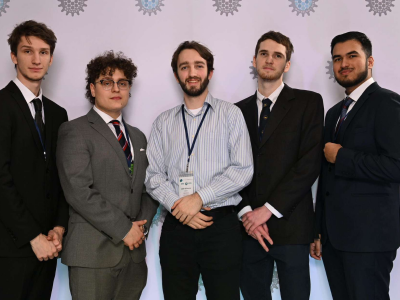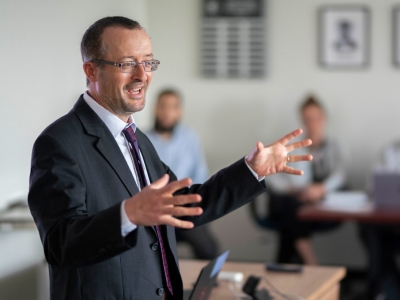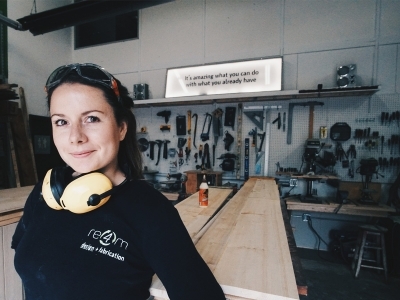By Joseph Mathieu
In high school, Khoa Tran took every advanced math, chemistry, physics and biology course available. When it came time to choose a university, he found it difficult to choose which field to pursue because he didn’t want to let go of any of his interests.
When he found Carleton’s Biomedical and Electrical Engineering program — which covers programming, software development, electrical design, biology, systems design, chemistry, physics, math and more — it felt like a perfect fit.
“Biomedical and Electrical Engineering also prepared me to apply what I had learned in practical applications that can have direct benefits in many industries,” says Tran. “This aspect was what resonated with me and made me want to pursue engineering.”
On May 12, Tran was announced as a recipient of the 2021-22 Vector Institute Scholarship in Artificial Intelligence (VSAI). The VSAI attracts top talent to AI master’s programs offered across Ontario, which provide the AI skills and competencies sought by employers.
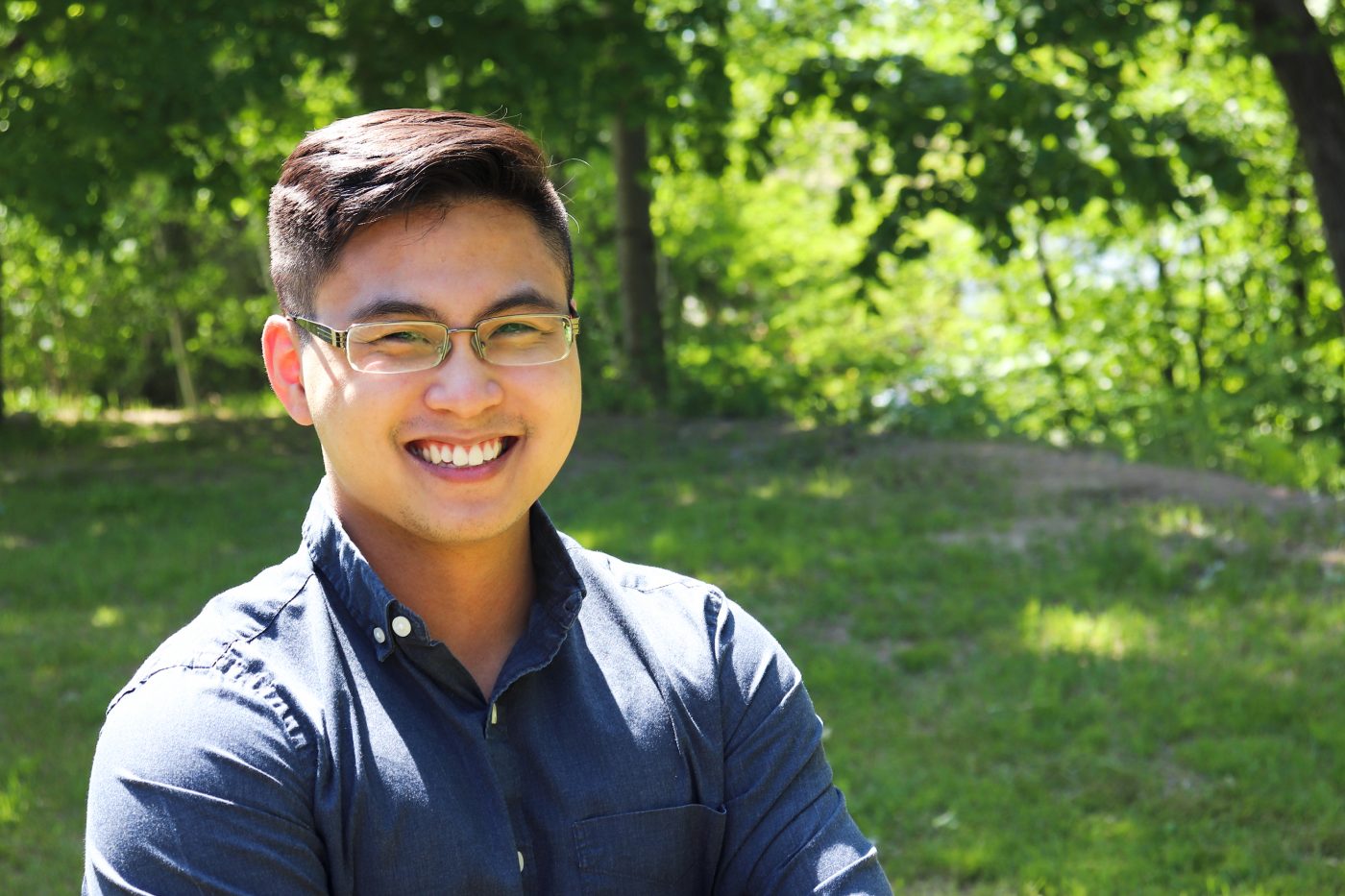
2021 Biomedical and Electrical Engineering grad Khoa Tran is now pursuing his Master of Applied Sciences in Electrical and Computer Engineering at Carleton.
The scholarship is valued at $17,500 and Tran will have access to personal development opportunities like seminars, research talks and networking events. With the VSAI, he will continue his graduate studies at Carleton to learn about more advanced AI and machine learning (ML) techniques and investigate their applications, primarily in the healthcare and biomedical fields.
“I am extremely excited to learn and practice the latest advances and techniques in AI, ML, digital signal processing and image processing,” he says.
What he experienced in the Biomedical and Electrical Engineering program only reinforced his desire to learn more, and he decided to stay at Carleton to pursue a Master of Applied Sciences in Electrical and Computer Engineering. According to Tran, the class offerings, the convenient location in the nation’s capital, and the access to state-of-the-art facilities and a large network of professionals, scholars, students and industries were all deciding factors.
There was also the success of Carleton’s co-op program, where students have the opportunity to do five four-month co-op work terms. Tran, who saw the program as an opportunity to experience a wide variety of industries and companies, first worked at Innovation, Science and Economic Development (ISED) Canada. Then he completed two terms at Thales (formerly Gemalto) and was a Front-End UI Software Developer at Ciena and a Network Management Solutions Developer at Nokia.
For most of his education, Tran only had a vague understanding that AI and ML were “useful and cool.” But in his final undergraduate year, Tran and his colleagues Greg Hamilton, Thomas Tran and Ahmad Shahbaz chose to do their engineering Capstone project on “Automatic Arterial Wall Tracking in Ultrasound using Machine Learning”. The work made him realize that AI and ML were exciting fields that could make huge advances in almost every industry.
In his final year, he enrolled in Coursera’s “Machine Learning” with Stanford University’s Andrew Ng, “Introduction to Machine Learning” with Prof. James Green of Carleton’s Department of Systems and Computer Engineering, and the graduate course “Pattern Classification and Experiment Design” with Carleton technology Prof. Jila Hosseinkhani.
Among his many great teachers, Tran says two were pivotal influences on his academic achievements and personal accomplishments: Carleton Profs. Sreeraman Rajan and Yuu Ono.
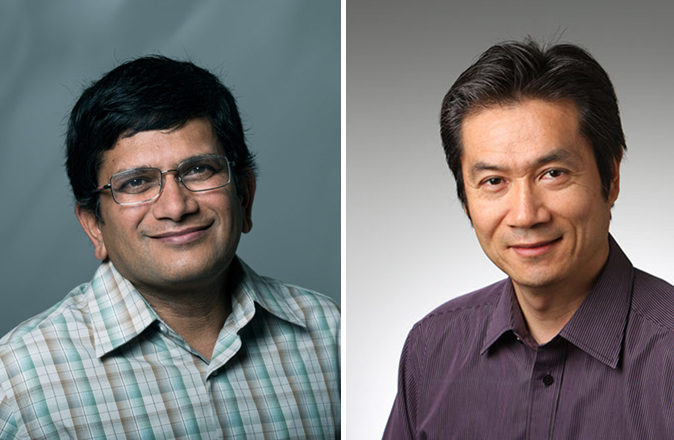
In acknowledging his many great teachers, Tran says Carleton Professors Sreeraman Rajan (left) and Yuu Ono were pivotal influences on his academic success.
Rajan taught Tran’s third-year “Bioelectrical Systems” course and strongly encouraged his engineering Capstone team to pursue a machine learning project. Rajan then introduced them to Prof. Ono and his work in wearable ultrasound technology.
“What’s exciting about this wearable ultrasound technology being developed in Prof. Ono’s lab is that it is cheaper than conventional ultrasound imaging systems, and it allows for continuous and long-term ultrasonic monitoring,” says Tran.
That technology is part of Tran’s ongoing investigation on how AI and ML can be used to perform automatic detection and tracking of arterial wall motions. This summer, Tran has also been awarded an NSERC Undergraduate Student Research Award (USRA) to further this work.
The need for cheap and easily accessible cardiac health monitoring is high because current examination procedures are expensive and require trained personnel. Tran hopes that the wearable ultrasound technology can make accessible and continuous cardiac health monitoring possible, and that the machine learning algorithms he is investigating can assist physicians in diagnoses.
Tran says when it comes to his academic success, he owes much to many. Both Rajan and Ono helped him in myriad ways, and he feels especially thankful to his Capstone colleagues Hamilton, Tran and Shahbaz. His friends and colleagues in the Biomedical and Electrical Engineering program — including Arushan Sinnadurai, Matthew Tung, Jake Staples, Vanessa Parayaoan and Victoria Ajila — were unendingly supportive and encouraging.
“They made my time studying at Carleton an amazing experience that was truly worth it.”
Thursday, June 17, 2021 in Biomedical and Electrical, Competitions and Awards (External), Feature Stories, Graduate, Undergraduate
Share: Twitter, Facebook
